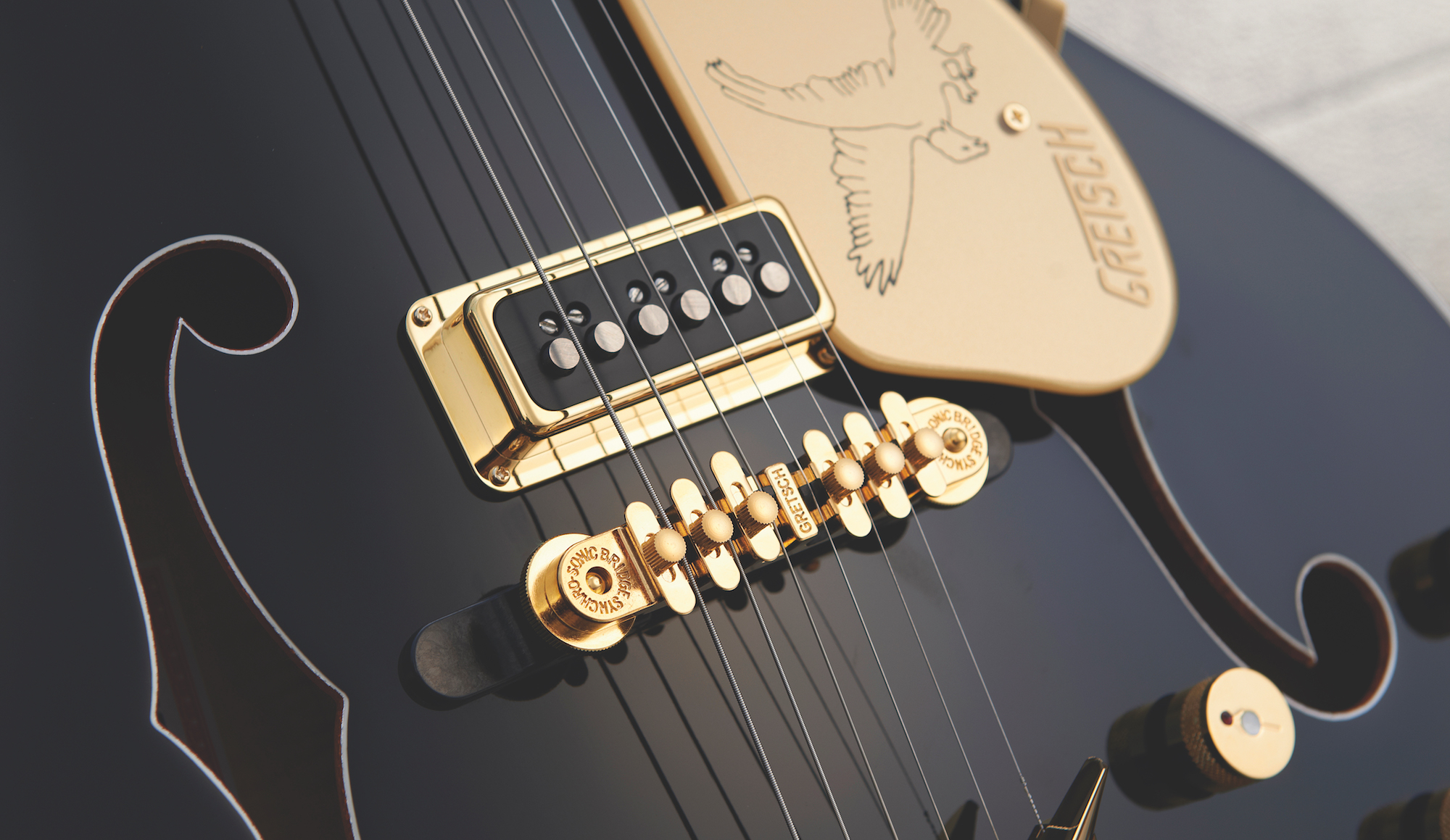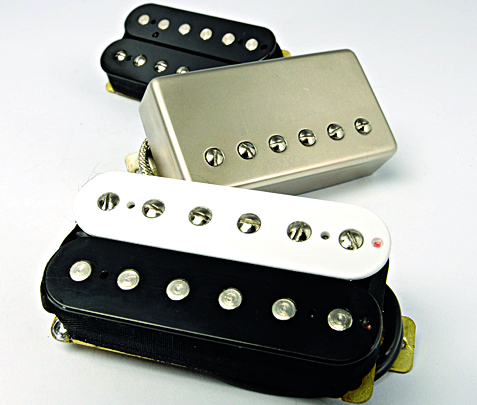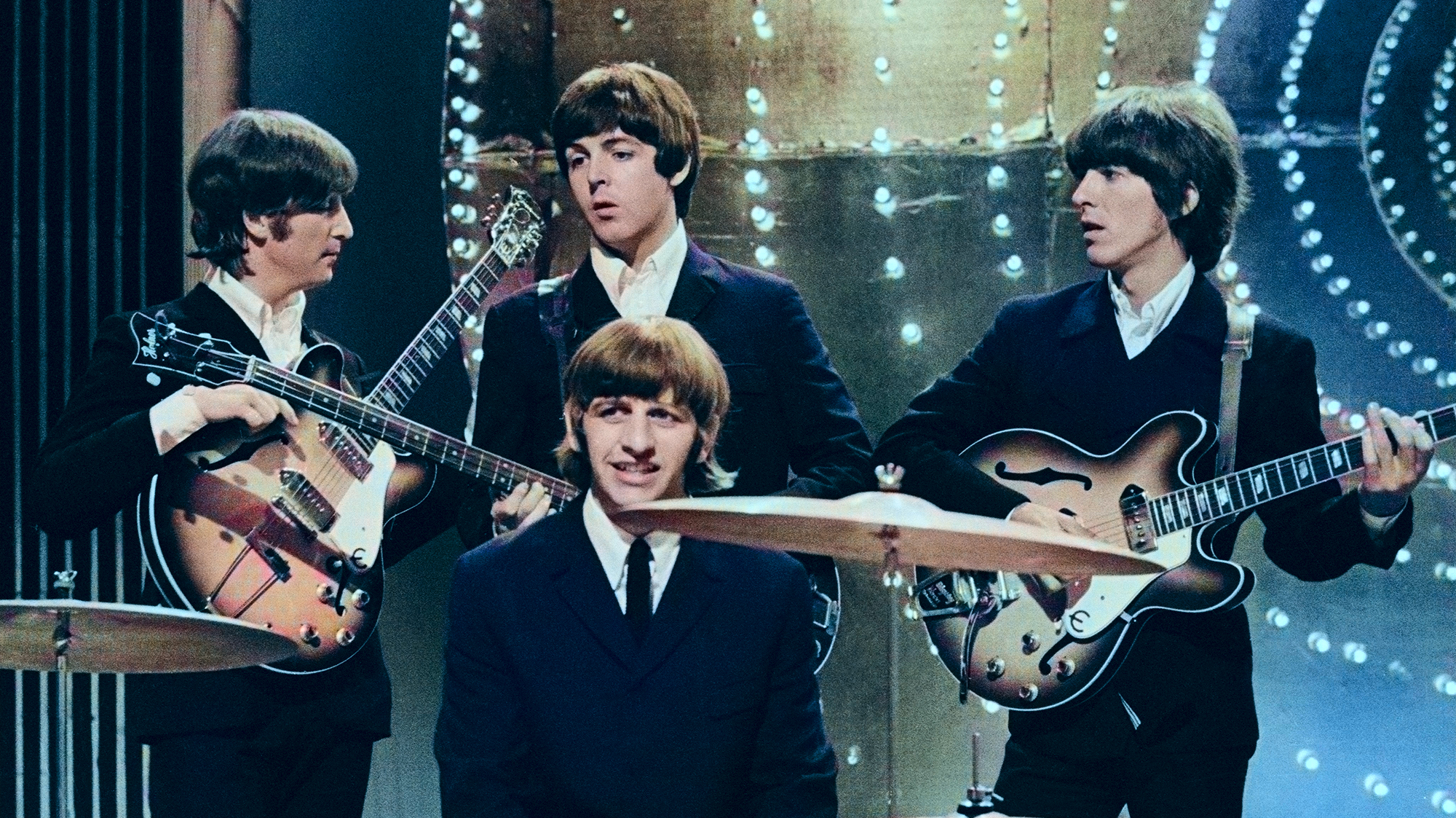Five Things You Should Know About Your Pickups
Pickups are one of the absolute cornerstones of your tone. Learn more about them here.

1. Your Sound Becomes Electric Here
This unassuming coil of wire is the thing that makes your tone electric. Without this, you are just playing a quiet acoustic guitar made out of solid wood.
This little factory creates an electrical current that represents the sound of your precious playing all the way until it hits the airwaves again through a speaker. So the way in which that current is created is the cornerstone of your tone.
2. Magnet Material Is Important, But It Isn't The Final Word
As a rule of thumb, alnico magnet pickups are considered smooth and dynamic, while ceramic magnet pickups are considered precise and aggressive. But in each case, the material used is only a tool to provide the magnetic strength (a.k.a. gauss) that allows the coil to produce an electrical current.
Your signal doesn’t pass through the magnet in any way. Pickup designers who know their onions can make just about any type of pickup with any magnet, and Joe Barden, Bill Lawrence, DiMarzio, Seymour Duncan, and several others make entirely smooth and dynamic-sounding units with ceramic magnets.
3. Coil Variables Are Considerable
Guitarists tend to be aware of the differences between single-coils and humbuckers, and to some extent “vintage” vs. “high-output” pickups, but the variables in design and construction even between similar types are considerable and affect their performance greatly.
As crucial as pickups are, it’s important to know that they can’t do it alone
Not only do different types and gauges of coil wire lead to different sounds, but the way in which the wire is wound also has a major impact. Tightly and evenly wound coils sound different than those wound unevenly or “scatter wound.”
Wide and shallow coils sound different than tall and thin coils, even when they carry the same length of the same wire. Wax-potted coils sound different than un-potted, and so forth.
Get The Pick Newsletter
All the latest guitar news, interviews, lessons, reviews, deals and more, direct to your inbox!
4. Magnet Location Also Affects Tone
Two pickups that have identical coils, but have magnets placed differently – one with magnet pole pieces, one with steel pole pieces and a magnet below to “charge” them – will sound inherently different.
The magnet pole piece unit (think Fender Strat and Tele pickup and Gretsch Dynasonic) will have a slightly snappier response with crisp note definition, while the steel-pole pickup will sound relatively thicker, and perhaps a tad grainy (think P-90, Filter’Tron, or PAF-style humbucker).
The reason behind this, says Lindy Fralin, “gets us into some really heavy duty physics. Part of the reason is that there’s a more complicated magnetic field [with the magnet below steel poles], because the bar magnets are sideways under everything.” Simply know that it makes a difference!

5. Output Strength Affects Tone, Too
While it obviously impacts the strength of your signal – changing overdrive characteristics in particular – a pickup’s tonal character also changes as its power increases.
When you overwind a pickup to make it more powerful, mids increase, but highs decrease, and low end often softens too.
Every change to a design affects tone, and not just the so-called output strength. And, as crucial as pickups are, it’s important to know that they can’t do it alone: Any guitar’s resonant characteristics (formed by its woods, construction, hardware, scale length, and so on) shape its sound even before the pickup translates it into an electrical signal, so every ingredient matters.
Dave Hunter is a writer and consulting editor for Guitar Player magazine. His prolific output as author includes Fender 75 Years, The Guitar Amp Handbook, The British Amp Invasion, Ultimate Star Guitars, Guitar Effects Pedals, The Guitar Pickup Handbook, The Fender Telecaster and several other titles. Hunter is a former editor of The Guitar Magazine (UK), and a contributor to Vintage Guitar, Premier Guitar, The Connoisseur and other publications. A contributing essayist to the United States Library of Congress National Recording Preservation Board’s Permanent Archive, he lives in Kittery, ME, with his wife and their two children and fronts the bands A Different Engine and The Stereo Field.
"The only thing missing is the noise from the tape loop." We review the Strymon EC-1 Single Head dTape Echo, a convincing take on a very special vintage tube Echoplex
A gigantic $360 off Positive Grid's celebrated BIAS amp sim software may have just put the nail in the coffin of my beloved valve combo











